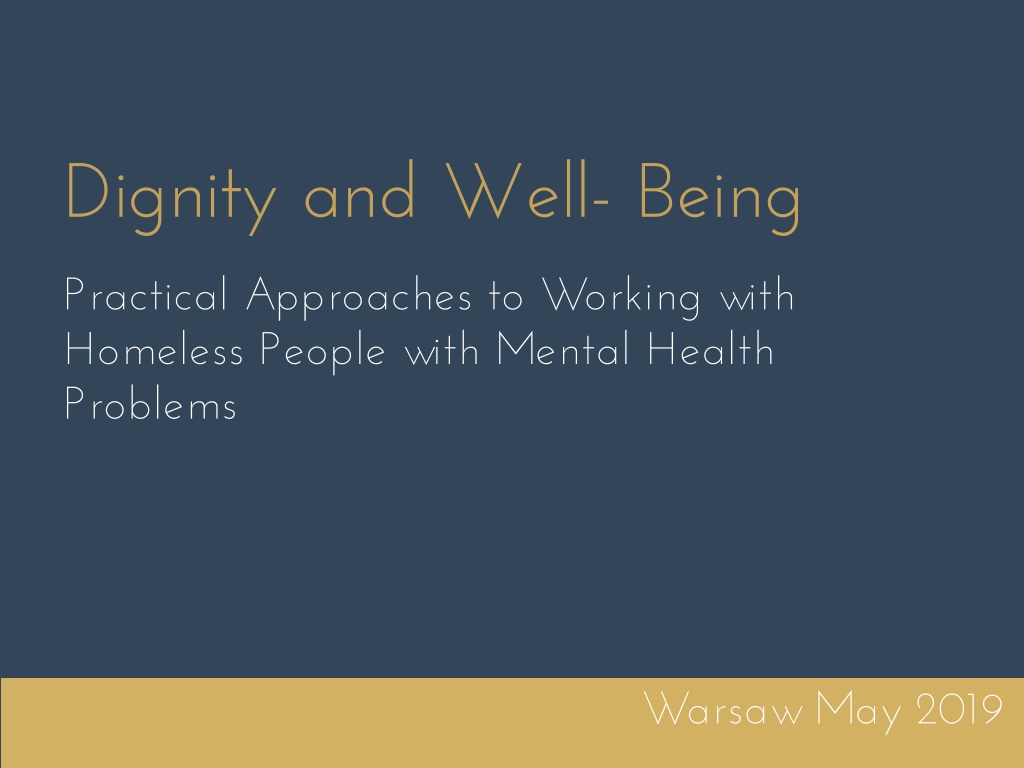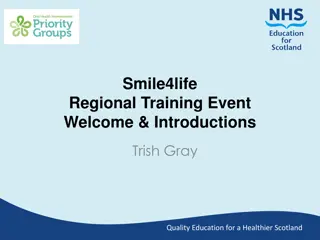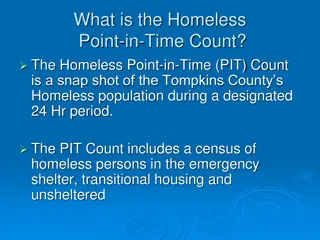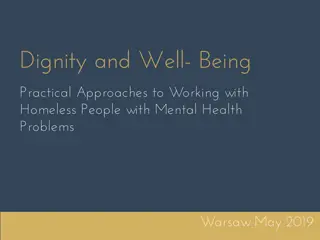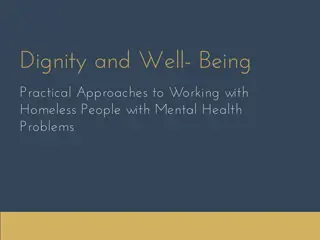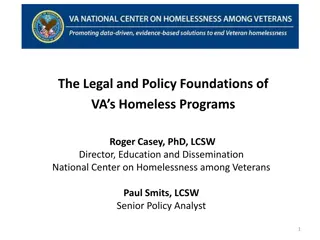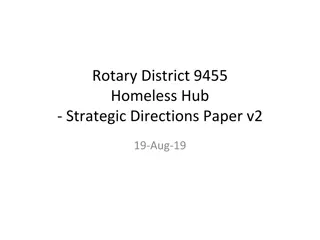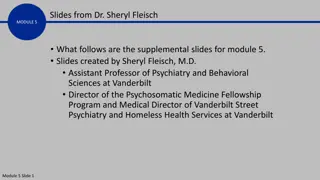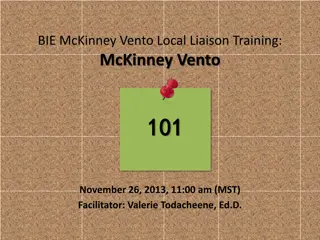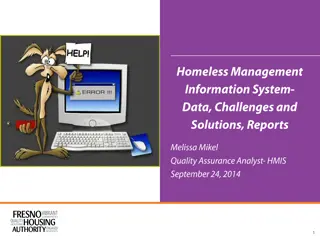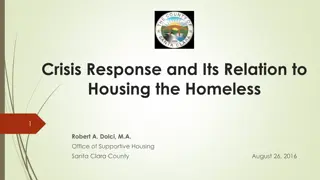Practical Approaches to Working with Homeless People with Mental Health Problems
Addressing social exclusion and compound trauma in homeless individuals with mental health issues requires a holistic approach focused on dignity, well-being, and recovery. Professionals play a key role in instilling hope, respecting choices, and fostering strengths during the personal journey of recovery, which involves fostering inclusion, connection, and participation rather than just focusing on securing jobs.
Download Presentation

Please find below an Image/Link to download the presentation.
The content on the website is provided AS IS for your information and personal use only. It may not be sold, licensed, or shared on other websites without obtaining consent from the author. Download presentation by click this link. If you encounter any issues during the download, it is possible that the publisher has removed the file from their server.
E N D
Presentation Transcript
Dignity and Well- Being Practical Approaches to Working with Homeless People with Mental Health Problems Warsaw May 2019
Recovery Warsaw May 2019
Social exclusion Compound Trauma Infancy Dysfunctional homes Physical and/or sexual abuse Parent substance abuse or mental ilness Running away from home Foster care and institutionalisation Adulthood Loss of jobs Economic crises Poor physical and mental health Substance abuse Physical or sexual violence Lack of social networks
Addressing social exclusion Stable self Home Connectedness Personal value
Elusive dimension Participation Recapacitation Reconnecting Empowerment Rehabilitation Employment Recovery Evokes illness Medical model vs social model - deficits vs strenghts Evokes return Return or building form scratch?
Recovery Personal process User s point of view Growth of hope New meaning in life Empowerment Development of skills and strategies Safe economic and social base Supportive relationships and social integration
Role of professionals To instill hope and build a positive realistic view To support, connect and create opportunities that the user can choose Respect choices, not impose plans and solutions Focus on strengths and self-determination Ability to listen Respect the right to choose Work collaboratively
Main ideas Recovery is not treatment Recovery is a process not a state It is a personal journey Trust is central No predetermined destination To foster inclusion, connection,participation Access to jobs can lead to self-support, independence and recognition Having a job is not everything
Difficulties Pressure for fast results Emphasis on short term solutions Stepwise model vs Job first approach Competitive labour market Labour/work affects identity Recovery takes time and is not linear
Good practices Safe and stable environment with key figures Central focus on relationship Stable case managers Continuity of care Person centered approach Provision of appropriate levels of care Networking Peer support and experts by experience Active citizenship
